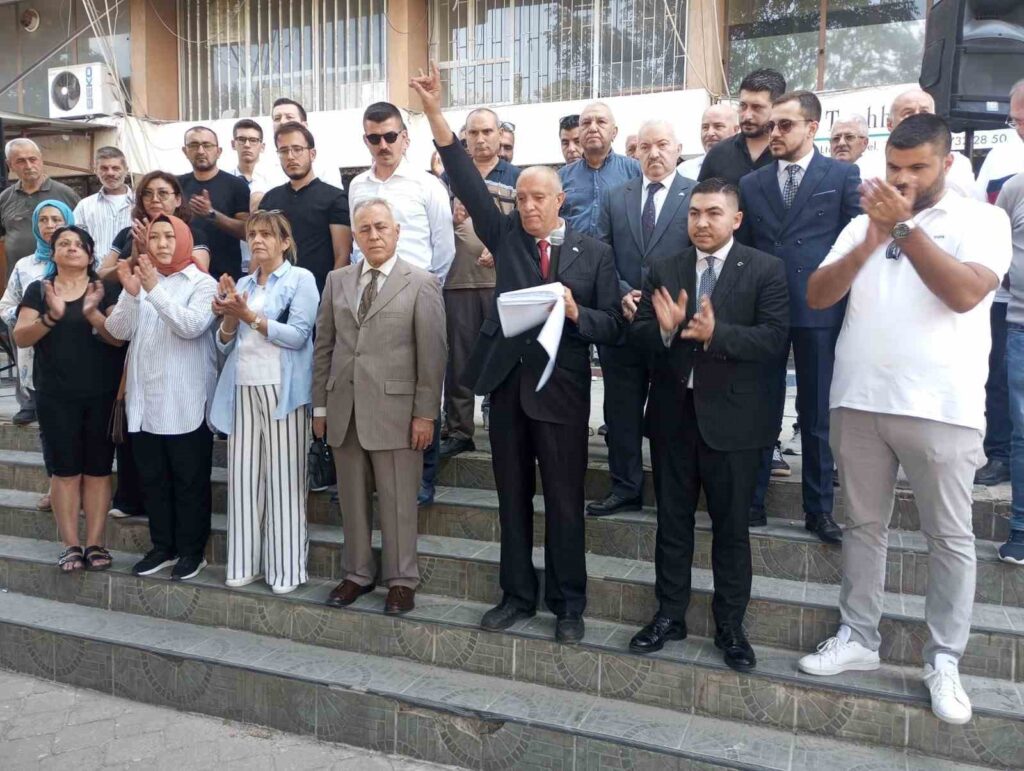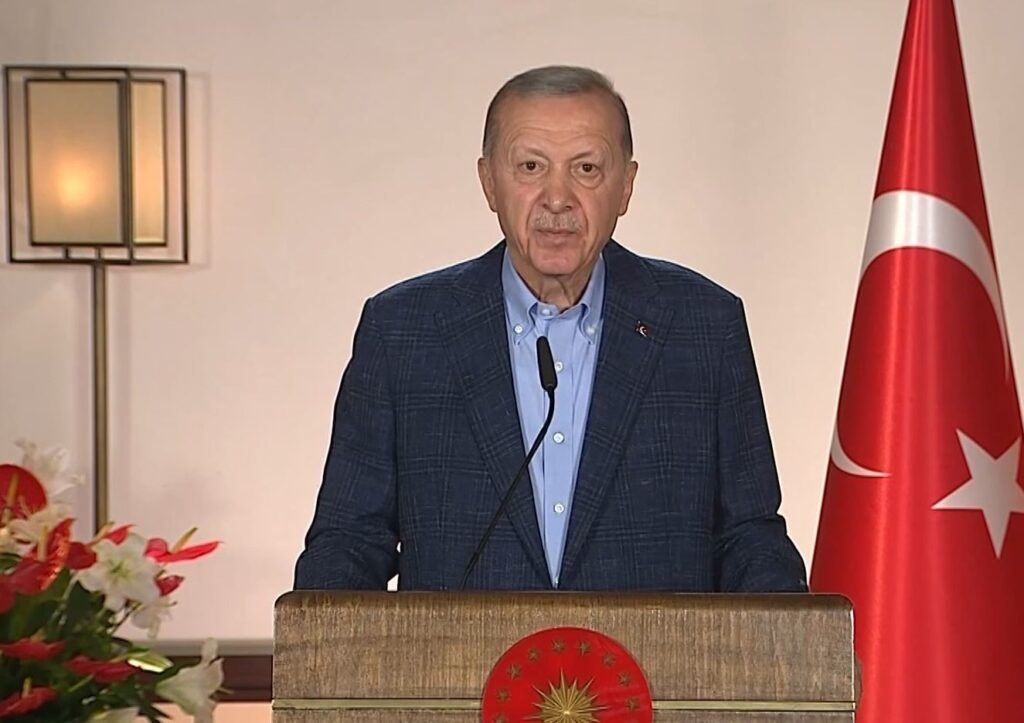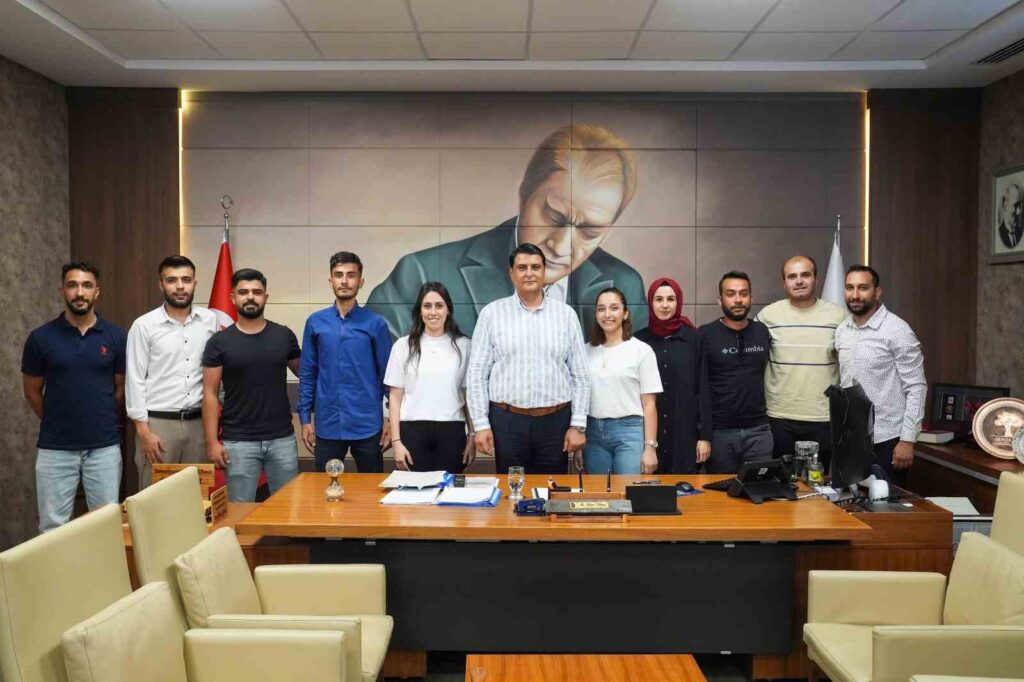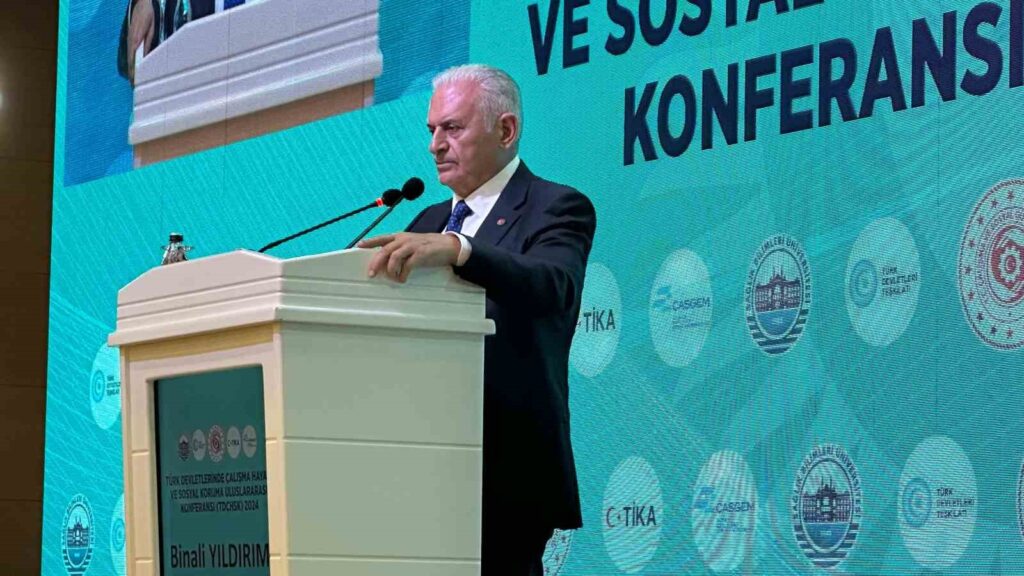The heart of the aviation world will beat in Antalya.
The global aviation industry gathered in Antalya. The international event “AI in the Sky: A Unified Approach with ICAO” is taking place in Antalya from November 12 to 14. The Minister of Transport and Infrastructure Abdulkadir Uraloğlu, the State Air …
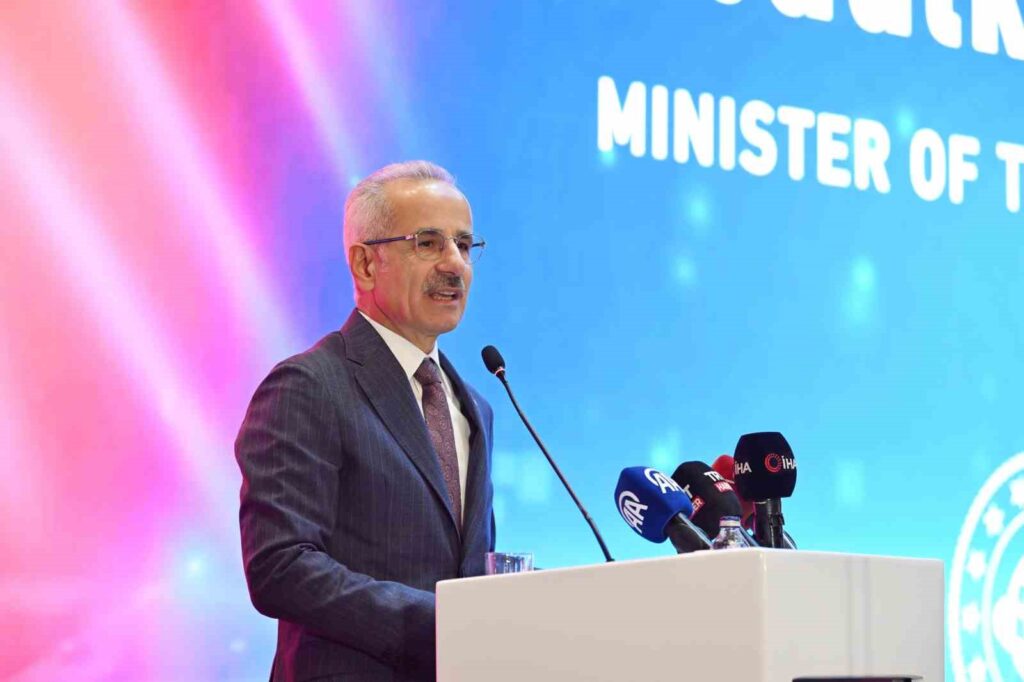
The global aviation sector has gathered in Antalya. The international event “AI in the Sky: A Unified Approach with ICAO” is taking place in Antalya from November 12th to 14th. Minister of Transport and Infrastructure Abdulkadir Uraloğlu, through the General Directorate of State Airports Authority, conveyed that “The most important issue we prioritize in terms of cybersecurity is domesticity and national production from software to device manufacturing. I believe that investing in these technologies will contribute to our country in achieving a stronger position in global competition.”
The international event “AI in the Sky: A Unified Approach with ICAO” has started in Antalya. The opening of the program, held in the congress hall of a hotel located in the Serik district, was attended by Minister of Transport and Infrastructure Abdulkadir Uraloğlu, Secretary General of the International Civil Aviation Organization (ICAO) Juan Carlos Salazar, Antalya Governor Hulusi Şahin, and officials from the aviation sector.
“We predict that our passenger numbers will exceed 236 million by the end of this year”
Minister of Transport and Infrastructure Abdulkadir Uraloğlu, who delivered the opening speech, shared the artificial intelligence applications used in the aviation sector. Pointing out that Turkey is located at the center of 67 countries with 1.5 billion people living within a 4-hour flight time, Minister Uraloğlu stated, “With the awareness that air travel is the fastest, safest, and most comfortable mode of transportation, we have made significant investments in the aviation sector to maximize the potential of our country’s advantageous position. Under the leadership of our President, we have transformed our country into one of the countries with the widest flight networks in the world, acting with the goal that ‘there will be no point in the world we cannot reach.’ Today, we fly to 58 domestic destinations and 347 different points in 131 countries internationally. Next month, we will start new flights with Turkish Airlines on the Istanbul-Sao Paulo-Santiago and Istanbul-Kuala Lumpur-Sydney routes, increasing our number of international destinations to 349 by the end of this year. We predict that our passenger numbers will exceed 236 million by the end of this year and 250 million by 2025.”
“We must produce innovative solutions for permanent competition”
Emphasizing that the aviation sector is the most important actor in globalization, Minister Abdulkadir Uraloğlu expressed that aviation plays a significant role in the economic and cultural development of countries and is a bridge that transcends borders. Highlighting that the aviation sector is continuously transforming and that competition in the sector is increasing in an era of rapidly advancing technology, Uraloğlu stated: “Having a young, modern, and efficient aircraft fleet is one of the most important factors that allows airlines to get ahead in competition. However, we must continuously produce innovative solutions for permanent competition. At this point, just as in every area of our lives, we must also evaluate artificial intelligence and big data technologies in aviation. The aviation sector has been the sector where digital technologies have been most widely implemented and whose use is constantly increasing. The first automatic baggage sorting systems emerged in the 1990s, and since the early 2000s, e-tickets have replaced paper tickets, and boarding passes have been moved to mobile platforms. Real-time baggage tracking has begun. Today, advancements in artificial intelligence are profoundly affecting the aviation sector.”
“Autonomous flight systems have minimized pilot errors”
Continuing his speech by addressing the changes brought about by artificial intelligence in aviation, Minister Uraloğlu stated: “One of the biggest changes, thanks to autonomous flight systems, has minimized pilot errors. All companies in the aviation sector can reduce their operating costs and overheads with AI-supported systems. Many firms are working on this. Nothing artificial remains in the field of artificial intelligence; we see concrete, successful, and positive contributions. Thanks to artificial intelligence, the maintenance processes of aircraft will be optimized, and malfunctions will be detected in advance. Air traffic management will become more efficient with big data analysis, preventing accidents. Moreover, by analyzing passenger behaviors with big data analysis, more personalized services will be offered. Aircraft lifespans will be extended and maintenance costs minimized through AI-supported maintenance systems. One of the most important points is that air traffic management will become more environmentally friendly, emissions will be reduced, and a sustainable aviation sector will be built, thanks to artificial intelligence and big data. I want to say that these things are happening one by one.”
“Domesticity and nationalism from software to device production”
Minister Uraloğlu noted that the transformations achieved through artificial intelligence have taken the aviation sector to another dimension, stating that investments in data technologies will provide a competitive edge in global competition. Uraloğlu remarked, “I believe that artificial intelligence and big data technologies are a significant turning point for our aviation sector. I think that investing in these technologies will contribute to our country in achieving a stronger position in global competition. Recently, I attended a summit on the effects and applications of artificial intelligence technology in the field of cybersecurity. We now see these new technologies in every aspect of our lives. The most important issue we prioritize in terms of cybersecurity is domesticity and national production from software to device manufacturing.”
“The command system will also be used at Dalaman Airport”
Minister Uraloğlu expressed that the artificial intelligence applications named “Avcı, Azad, Kasırga, Atmaca, and Kule,” developed domestically and nationally, ensure Turkey’s cybersecurity, continuing: “I would like to emphasize with pride that we use the software and devices we developed domestically and nationally in the flight operations we carry out through our General Directorate of State Airports Authority. For example, we have established a system called ‘irade,’ which collects and presents up-to-date meteorological data, ATIS information, NOTAMs, AIP, and radar images related to the airport on a single screen. We started using the Irade software at Istanbul Atatürk and Çukurova airports, marking the beginning of a new era in the aviation sector. Thanks to our first domestic and national air traffic visualization software, we have eliminated foreign dependency in this area and paved the way for future domestic technology products. We will also start using it at Dalaman Airport in the coming days. Additionally, we installed Turkey’s first domestic and national civil surveillance radar, developed by Turkish engineers, “MGR,” at Gaziantep Airport. We plan to activate and start using it in December.”
“The ÇARE system has also started operating in Azerbaijan”
Minister Uraloğlu announced that the “ÇARE” system, a multifunctional radar screen developed with domestic capabilities for air traffic management, allows air traffic controllers to effectively manage air traffic and maintain the highest level of traffic safety by displaying real-time flight data on a map. “The ÇARE system, which serves at more than 40 airports in our country, has also started operating in Azerbaijan last year, crossing our borders. As Turkey, we have also created a new civil aviation model focused on digitization in the field of civil aviation. This model, which we call the ‘Institutional Transformation Model’ or KDM, not only ensures safety and efficiency but also enables a sustainable transformation in the sector through an infrastructure supported by advanced technologies. This model presents all the digital infrastructure that aviation authorities may need, integrating it with artificial intelligence and big data. In this system, developed in accordance with ICAO regulations, training is based on a transparent, traceable, and independent measurement mechanism. Thus, both the quality of the training increases, and a much more effective learning environment is provided for participants. Our new aviation model also ensures proactive and dynamic business process management that minimizes human error. Big data infrastructure enables the early detection of potential risks with real-time analyses.”
Minister Abdulkadir Uraloğlu emphasized that one of the most concrete examples of digitization and data integration is the OLS/CNS software, concluding his speech: “This software accelerates the preparation of obstacle restriction surfaces and structure restriction area maps to ensure safety around airports and provides results with high accuracy. The integration with the digital terrain and surface model allows all potential obstacles on the terrain to be automatically reflected on the maps, improving these extremely sensitive processes from a safety perspective through a digital approach. Moreover, since this software is developed on an open-source platform according to the needs of aviation authorities, it can be customized according to user needs. Additionally, the UAV tracking and traffic management system provides another example of data-driven decision-making in air traffic. By accelerating the processes of autonomous commercial transportation and drone usage, it maximizes operational efficiency. Thanks to dynamic drone bands, intercity autonomous UAV flights, and the ability to monitor flight records in real-time, security is ensured at the highest level. As a result, this civil aviation model, supported by digitization, data, and artificial intelligence, not only brings innovation to the sector but also initiates a new era for sustainability, efficiency, and safety in aviation. This new approach enables us to realize our vision of innovation in the sky and stability in the sector.



